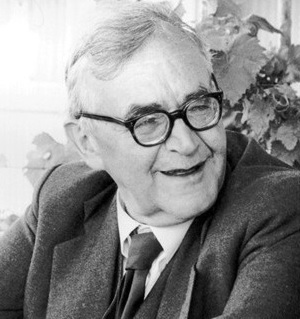Within contemporary theology and philosophy, there are lots of debates related to universalism. There are lots of issues that come up under discussion and are well worth thinking about. I don’t know the answers to all of them, by the way, but the following are the kinds of issues that would be talked about and raised.
The nature of divine justice?
Traditional views of hell are based on a particular view of what divine justice is. It’s the view that justice is understood in terms of retribution—the punishment must fit the crime, it should be appropriate to the crime and proportionate to the crime. Which in itself, raises a whole bunch of questions about traditional hell. Because if traditional hell is built on the idea that the punishment should fit the crime, how could a finite sin committed by a finite creature be so severe that the appropriate punishment is an infinite punishment? So in itself, the doctrine of retribution—which props up traditional views of hell—seems to undermine them at the same time, or at least make problems for them. There are attempts to defend traditional views of hell in the face of this kind of objection but there are also explorations among philosophers and theologians of alternative understandings of what divine justice might be. Oftentimes in Scripture, justice is seen as something that is about God’s saving justice. God saves people through justice. God restores people through his justice. It’s not simply about retribution. So there are all sorts of discussions about what divine justice might be in Biblical Studies and contemporary theology particularly.
Free will and divine sovereignty?
Particularly for universalism, the question becomes, “If humans have freedom—God can’t force people’s wills—how does God ensure that everybody chooses to be saved?” That’s a really good question and it’s a question that should be taken completely seriously. There are ongoing debates about this—particularly in philosophy of religion and philosophy. How is it that if people have free will—understood in terms of the ability to do something or not do it—how is it that God can ensure that you do the thing that God wants you to do, without forcing you? If he can’t force you, how does he ensure that the end of the cosmos will ever be what he wants? Does this mean we can thwart God’s purposes?
Some of the best people in this debate are:
- Jerry Walls—Methodist philosopher—is very sympathetic to universalism but not a universalist. He does think you can be saved from Hell though… but he thinks that you can’t ever be guaranteed universalism because of free will.
- Thomas Talbott, Eric Reitan, and folk like that, argue against that—that in fact, you can guarantee universalism even if people have free will.
Divine love?
Can hell be a loving thing? Some people argue that it’s loving for God to send people to hell—even if hell was eternal conscious torment. For example, Eleonore Stump—Catholic philosopher—argues, on a sort of Thomas Aquinas kind of approach, that even just existing is a good and thus if God deprived you of existence, he’s depriving you of a good… So allowing you to exist in eternal conscious torment is at least God allowing you some good (I’m sceptical about how kind it would actually be).
Atonement?
Some of the debates about penal substitution kind of link in with this. I mean, John Owen—great Puritan theologian—wrote what is perhaps the best defence of limited atonement (the view that Christ died for some people but not others). I remember reading it as a teenager and bits of it really drawing and attracting me, and bits of it really appalling me. Even though I was a Calvinist at the time, I still found parts of it appalling. But one of the things that was interesting, that struck me, is one of his reasons for arguing that Christ didn’t die for everyone was this: “Look, everyone for whom Christ dies will be saved. I mean, Christ’s death can’t be in vain. So if Christ died for everyone, they’d all be saved obviously. But they’re not all saved—we know that because some people go to hell—so he couldn’t have died for everybody.” The logic seems impeccable—at least on his understanding of atonement. But maybe he could have flipped it around and thought, “If Christ died for everyone….” Because the Bible does actually say that. Although to be fair, he has a good go at trying to show how the texts that look like the Bible actually says that, don’t actually say that. It doesn’t work but it’s a pretty intelligent attempt. If Christ did die for everyone, then yeah, maybe he should have contemplated the possibility of universalism.
Election?
In contemporary theology, particularly in contemporary Reformed theology, election is one of the really core things that has raised the issue again. Calvin thought that God elected some people to salvation but not everybody. As this developed within Calvinism, this sometimes became a sort of double predestination, whereby God elects some people to salvation and elects other people to damnation. But within the Reformed tradition, there was, and is, always rethinking of different doctrinal focuses—one of those was election. For example, Schleiermacher, in the 19th century, rethought it in a way where he’s trying to defend Calvin. He’s arguing that, actually, there is not a double decree—God doesn’t decide some for salvation and some for damnation. God makes a single decree, he doesn’t elect individuals, he elects the human race. God elects humanity the race for salvation but the race can’t experience that salvation unless all the individuals that composite it, experience that salvation. So he ends up arguing for universalism but a different account of election.
What’s been a lot more influential than that, is Karl Barth in the twentieth century, again with a radical revision of the reformed doctrine of election. He argued that in fact, Christ doesn’t elect some people to salvation and some people to damnation. God doesn’t elect any individual people, he elects Christ. So Christ is the subject of election and Christ is elect. Those who share in Christ are elect… well, everybody is elect in Christ. So there’s a sense in which, God doesn’t elect me to salvation, he elects Christ but in Christ, I share in that election of Christ. That rethinking of election has led a fair few people… I mean, Jurgen Moltmann was one of Barth’s students and he went on with universalism and Jacques Ellul—French Reformed thinker—developed these kinds of ideas in universalist directions. Barth always insisted he wasn’t Universalist and we could talk about that but anyway, these are some of the debates that are going on in philosophy and theology.
Above is my transcript—with minor editing for readability—of an excerpt from the video below. See Robin’s Hope & Hell videos for more transcripts.
















